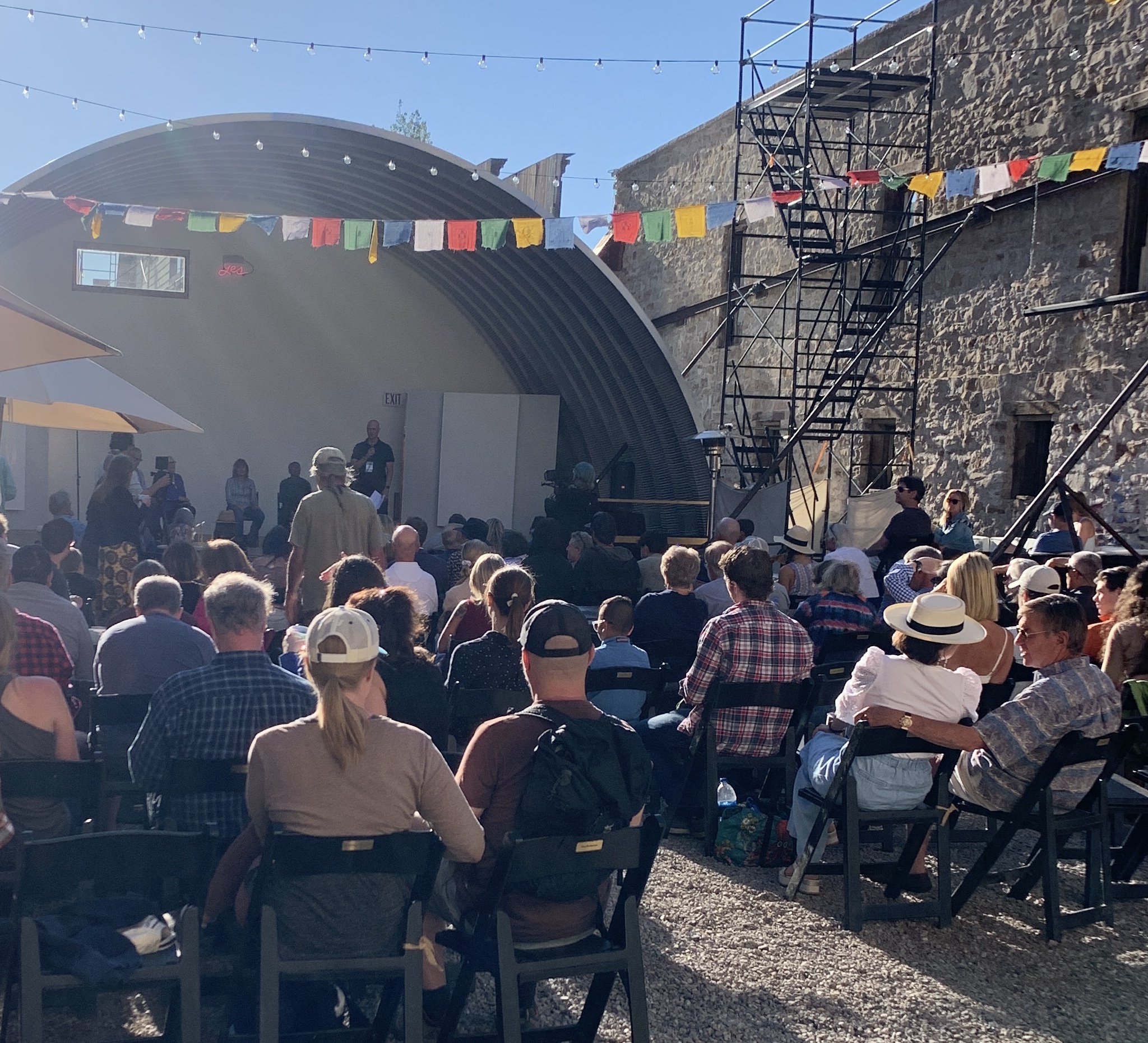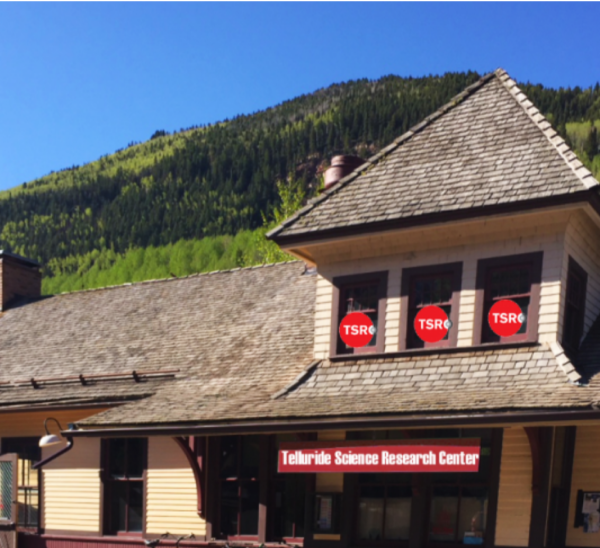
23 Jul Telluride Science: Final Town Talk Wraps Summer 2021 Season!
At the Telluride Transfer Warehouse on Tuesday, July 27th, Telluride Science hosts its sixth and final Town Talk of the summer 2021 season: “Vital Signs- Healthy Air, Climate, and Environmental Equity in Cities.” Cash bar and doors opens at 6:00pm; the hour-long program begins at 6:30pm.
(**Inclement weather prompts a venue change to Telluride’s Wilkinson Public Library .)
For more on Telluride Science and The Depot, go here.
To learn more about the Depot Project and how to become involved in the exciting future of Telluride Science, contact Mark Kozak at mark@telluridescience.org.
And please scroll down to watch a short video which underlines the magic of Telluride Science from the horses’ mouths.

Rapt crowd at June 6th Town Talk at the Telluride Transfer Warehouse.

Hybrid Telluride Science event: Vibrational Dynamics 2021.
The Telluride Science Research Center welcomes its last group of scientists for the season this coming week with workshops covering fundamental molecular biophysics, epithelial physiology and cell biology, energy transfer and storage, and urban air mapping and analysis. And, that Tuesday marks the the last chance of the 2021 summer season for the Telluride community to engage with scientists in person.
Titled, “Vital Signs: Healthy Air, Climate, and Environmental Equity in Cities,” this final Talk features veteran journalists Judy Muller and George Lewis leading the conversation with Ron Cohen of the University of California Berkeley; Kevin Gurney of Northern Arizona University; and Amy Mueller of Northeastern University.
All three scientists are in Telluride this week for a workshop on “Mapping Urban Air” and each has expertise in emerging methods to collect and analyze data that can serve to inform policymakers and pinpoint problem areas. The group will address the effect of transportation and energy use choices and the increasing prevalence of wildfire smoke that exacerbates urban air pollution. They will address the imbalance of the impact on cities and what can be done to improve environmental equity. Audience members will have the chance to ask questions at the end of the program.
Due to COVID-19, all Telluride Science workshops were virtual in 2020. The 212 scientists who made their way back to Telluride in 2021 have been effusive about the renewed energy and focus the experience has provided. As a recent participant Richard Kriwacki of St. Jude Children’s Research Hospital noted:
“It was a great time for science, interaction, being outdoors and hearing some excellent music! I feel recharged.”
A perennial organizer of the “Intrinsically Disordered Proteins” workshop, Kriwacki always makes sure to schedule his workshops to follow the Ride Festival.
The staff of Telluride Science was eager for the scientists to return as well. As Executive Director Mark Kozak said:
“When the scientists come back to town, I’m not only inspired by the intensity of thought and discussion that push the fields of biomedical science, energy, material science, environmental science, and basic science to new frontiers, but also I always welcome the time Telluride once again becomes a ‘college town’ where there are the opportunities to engage with thought-leaders and hear the latest developments in areas that affect all of our lives.”
The 2021 summer program schedule included a mix virtual and in-person workshops along with two virtual summer school programs. While a normal year would see over 1,400 scientists hiking the local trails and convening on Main Street, the small scientist showing in town this summer was bolstered by another 976 virtual participants. What’s more, 2022 is shaping up to be the largest ever for Telluride Science.
The future is bright for Telluride Science with an ever-expanding schedule of scientific workshops and new opportunities to expand innovation and public programming once the organization moves into its permanent home at the Telluride Depot.

“Now that Telluride Science has purchased the Depot,” explained Kozak, “we are launching a capital campaign to renovate the Nationally Historic Landmark and transform it into a state-of-the-art global science and innovation center. With the Depot as a dedicated programming space resource, we will be able to host scientists at any time of year, curate innovation workshops to drive advancements in technology and policy, and offer educational programming to students and the general public.”


Sorry, the comment form is closed at this time.